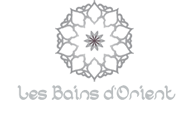Facial care
Keepers of a fascinating and sensual world, oriental women have been perpetuating their beauty and welfare rituals since the dawn of time.
They tend to favor natural cosmetics in order to obtain efficient and lasting results. Thus, they are holding beauty secrets that are being passed out from mothers to daughters and that represent a precious legacy.
In oriental countries, especially in Morocco, “to make yourself beautiful”, “being beautiful”, and to “appeal” to people are notions that are synonymous of “duty”.
Beauty, more than anywhere else is the promise of happiness there.
Nowadays, with this historical heritage and this ancient culture under their belt, Moroccan women are wavering between modernity and tradition, just like their country.

Here are some of their beauty secrets…

The Prickly pear seed oil
The prickly pear is a little marvel offered by nature, the oil contained in its seeds possesses stunning anti-wrinkle properties that moroccan women have been well aware of for a long time. They are using it to protect themselves against the burning wind of the desert.

Argan oil
An oil of thousand virtues renowned for Millenia by berber women, argan oil softens and protects the skin and hair.
Originating from Morocco between the cities of Agadir and Essaouira, it comes from the Argan tree. Rich in Vitamin E, which possesses antioxidant properties, it naturally helps the skin to fight the natural signs of skin sagging.

Rose water
As a beauty treasure, Rose Water as the virtue of invigorating and toning the skin. The floral water is obtained by distillation of the rose petals. It’s a natural toning lotion and its virtues have been renowned ever since antiquity. Its unique scent makes it a noble beauty product with numerous benefits

Rhassoul
In spite of the adverse climate they live in, berber women possess a smooth and soft skin. In the desert, exposed to dry winds, to sandstorms and to extreme temperatures, the skin of their face stays perfectly hydrated. What is their secret ? They are using Rhassoul, a clay paste they are using as a soap.
An Overview of our care…



